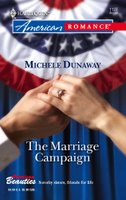Author Virginia Woolf believed that a woman needs money and a room of her own if she’s going to write fiction. Her central thesis was that every woman novelist needs a space to call her own where she can engage in uninterrupted writing time. Something male writers of that day (and probably still do) enjoyed without question. While suggesting that women’s art suffered due to a lack of space, Woolf used the room as a symbol for more complex problems -- such as women’s need for leisure time and financial independence, if their writing was to ever be taken seriously—which I’m not even going to try to tackle in a blog.
I just want to talk about the room. I’ve always written. At least since I picked up a #2 pencil and a Big Chief tablet when I was seven years old. I've written anywhere and everywhere – sitting up in an old apple tree, on the beach, on car trips, first with my parents, then later with my husband. I've written in my son’s pediatrician’s office, at his basketball and choir practices, at airport gates, on planes, sitting on a sidewalk waiting for the Fiesta Bowl parade to begin, in the woods on camping trips, and, before I had an actual office, most often at the kitchen table, which meant, of course, I’d have to clean everything off the table whenever anyone wanted to eat.
It wasn’t until I decided to become serious about becoming published in book length fiction that I actually claimed a room as my own. It was an extra bedroom being used as a storage room. At ten by ten feet, it was the smallest room in the house, but by the time I cleared out all the boxes, painted the walls a soft sky blue, and bought myself a pretty cherry French Provincial desk, that cramped little room was suddenly transformed into a refuge, a place where I could tell my stories in peace and quiet. (Relative peace, anyway. Once school let out for the day, I’d be writing with the booming sound of adolescent boys blasting away at video game aliens on the other side of the wall. )
I’ve had three more offices since that first small room. And they’ve gotten progressively larger. When I moved into this house, I was thrilled with my spacious four-hundred square feet, the vaulted ceiling, which is edged with bright white double-crown molding and soars up 13 feet, along with large windows on three sides of the room. Since the room's on the second floor, I look down on gardens or directly into the canopy of leafy green trees, which gives me a feeling of writing in a park. Continuing the outdoor nature theme, two walls are grayish-sea blue, two are a soft sea green, a compromise I came up with after struggling for weeks to choose between the two paint chips. Framed counted cross stitch and needlepoint -- created to look like Impressionist paintings -- hang on the wall, along with a framed poster of Irish cottages and Celtic wood carvings my sweetie made for me. At six feet, my desk is larger than that first desk -- although way smaller than Sue Grafton’s twenty-four foot (!) desk -- but somehow, during the course of writing a book, it still ends up covered with mountains of research texts, magazines, mail, and different colored ms. drafts. I am firmly convinced that the amount of clutter that accumulates is in direct proportion to the amount of flat surface I have in my office and by the end of a book those piles have spread to the floor around my chair.
My matching credenza manages to stay somewhat neater; while the space behind the closed doors is jammed with boxes of paper, except for a couple book posters and a stack of covers, the top is mostly my lucky baseball shrine, with, among other things, a model of Yankee Stadium; my autographed Mickey Mantle baseball, which was a birthday present from my husband years ago; a mug from Mickey Mantles in NYC, and my Yankee Barbie (wearing her pinstripe uniform, complete with warm-up jacket, mitt, and tiny Louisville Slugger), who, because of an unfortunate difference in scale, towers over the House that Ruth Built like a very stylish Godzilla about to attack Tokyo.
Because I can't edit in the same place I write, I have a pretty flowered couch on the far side of the room, but it's mostly where my dogs sleep. Heaven forbid they’d ever have to sleep on the floor, like, well. . . dogs!
I've been very happy in this bright and airy room, but then a few weeks ago, pal
Cindy Gerard sent me photos of her new writer digs, and I immediately came down with a serious case of office envy. Her walls are a soothing moss green, there’s a white fireplace (which I suspect she needs more in Iowa than I do in Tennessee), and leafy green plants, which, if they’re actually real are even more impressive. She has a loveseat with gorgeous pillows (which even come with a live cat lounging atop one of them) and a pretty rug, which her dog appears to have claimed.
The room is so neat that if I didn’t like Cindy so much, I’d have to hate her, but the most enviable thing about her office is that it looks so cozy. Just the type of place a muse would love to come visit. And better yet, even stay awhile, perhaps sharing a pot of tea while telling you all sorts of fabulous secret plot twists for your story you hadn’t begun to think of. In fact, the room looks like it should be photographed for a magazine. Did I mention that if I didn’t really, really like Cindy, I’d hate her?
The pictures got me thinking about other writers’ offices. Which segued into the idea that all women, not just writers, need a room to call their own. A private room (with a lock on the door!) that’s a sanctuary. A place where a woman can do whatever she wants -- write, read, dream, play free cell and spider solitaire, and yes, do absolutely nothing, if that's her choice.
So, if Virginia Woolf’s spirit suddenly appeared and could, with a flick of her wrist, create your own personal dream room for you, what would it look like? And what items would be “must haves?”




